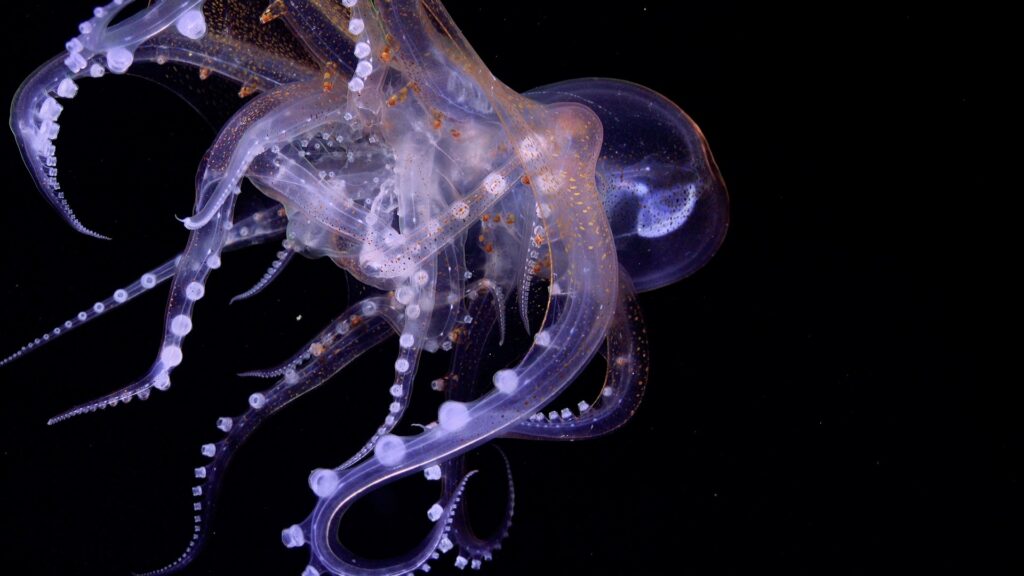Amazing New Species Found

In a remarkable discovery off the Pacific coast of Costa Rica, scientists have identified at least four new octopus species. These discoveries were made during two expeditions in 2023 aboard the Schmidt Ocean Institute’s research vessel, the Falkor (too). The expeditions focused on exploring hydrothermal springs in a roughly 260-square-kilometer area, revealing a rich and diverse ecosystem.
One of the newly identified species, named the Dorado Octopus, was discovered in the vicinity of a rock formation unofficially known as El Dorado Hill. This species was observed brooding its eggs in the warmer waters near the hydrothermal springs. The Dorado Octopus is part of the Muusoctopus genus, known for species that may have evolved to gather and brood their eggs in warmer waters.

In addition to the discovery of the octopus species, the expeditions also identified a deep-sea skate nursery, adding to the unique biodiversity of the region. The findings underscore the rich and diverse marine life that thrives in deep-sea environments, particularly around hydrothermal vents.

The research holds significant implications for the understanding and preservation of deep-sea ecosystems. More than 160 deep-sea animal specimens were collected during the December expedition and will be stored at the Museum of Zoology at the University of Costa Rica. This marks one of the first instances where biological specimens from a deep-sea expedition are stored in the country from which they were acquired, facilitating local research and potentially informing deep-sea management strategies.

The discovery of these new species highlights the vast, unexplored diversity of life in our oceans and the need for continued exploration and conservation efforts in these complex ecosystems. This research not only expands our knowledge of marine biodiversity but also stresses the importance of international collaborations in deep-sea exploration and conservation.
